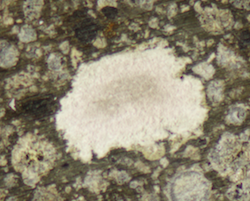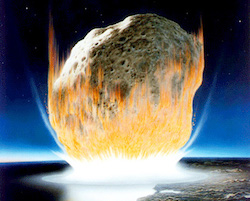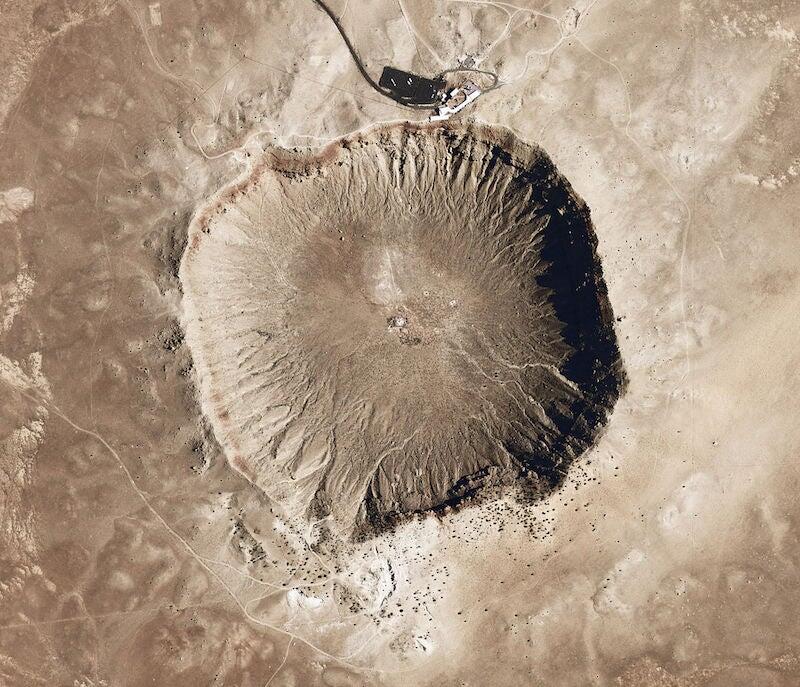
What secrets do meteorites tell?
Meteorites are like gifts from space for scientists. They are free space samples that provide us with tons of information about how our Solar System formed and evolved. What are some of the important and interesting things we’ve learned from meteorites?
The age of our solar system
 Some meteorites have white inclusions which are mostly made up of the elements calcium and aluminum. These solids are called calcium-aluminum-rich inclusions (CAIs). These are the first solids formed in the early solar system. The age of these CAIs tell us the age of our Solar System, which is 4.568 billion years. That is 456,800,000,000 years old! Very, very old.
Some meteorites have white inclusions which are mostly made up of the elements calcium and aluminum. These solids are called calcium-aluminum-rich inclusions (CAIs). These are the first solids formed in the early solar system. The age of these CAIs tell us the age of our Solar System, which is 4.568 billion years. That is 456,800,000,000 years old! Very, very old.
Stardust
Some meteorites contain tiny, microscopic bits of ‘stardust’ which are dust particles ejected from dying stars. They are also called ‘pre-solar’ grains because they formed before our Sun’s birth. These ‘stardust’ grains tell us about the birth, evolution, and death of the stars they come from.
Extinctions on Earth
 Did you know that a meteorite impact is thought to have played a major role in the extinction of the dinosaurs? Around 66 million years ago, a huge meteorite hit the Earth. The effects of this impact, both immediate and long-term, are thought to have led to the extinction of the dinosaurs that were alive at the time of the event.
Did you know that a meteorite impact is thought to have played a major role in the extinction of the dinosaurs? Around 66 million years ago, a huge meteorite hit the Earth. The effects of this impact, both immediate and long-term, are thought to have led to the extinction of the dinosaurs that were alive at the time of the event.
Additional images via Wikimedia Commons. Aerial view of Meteor Crater by NASA/National Map Seamless Server.

Meteorites hold science secrets, but so do meteors and the impact craters they leave behind. Here we see an aerial view of Meteor Crater, a large impact crater caused by a meteor. Visit our top question to learn more about impact craters.
Be Part of
Ask An Earth and
Space Scientist
By volunteering, or simply sending us feedback on the site. Scientists, teachers, writers, illustrators, and translators are all important to the program. If you are interested in helping with the website we have a volunteers page to get the process started.
